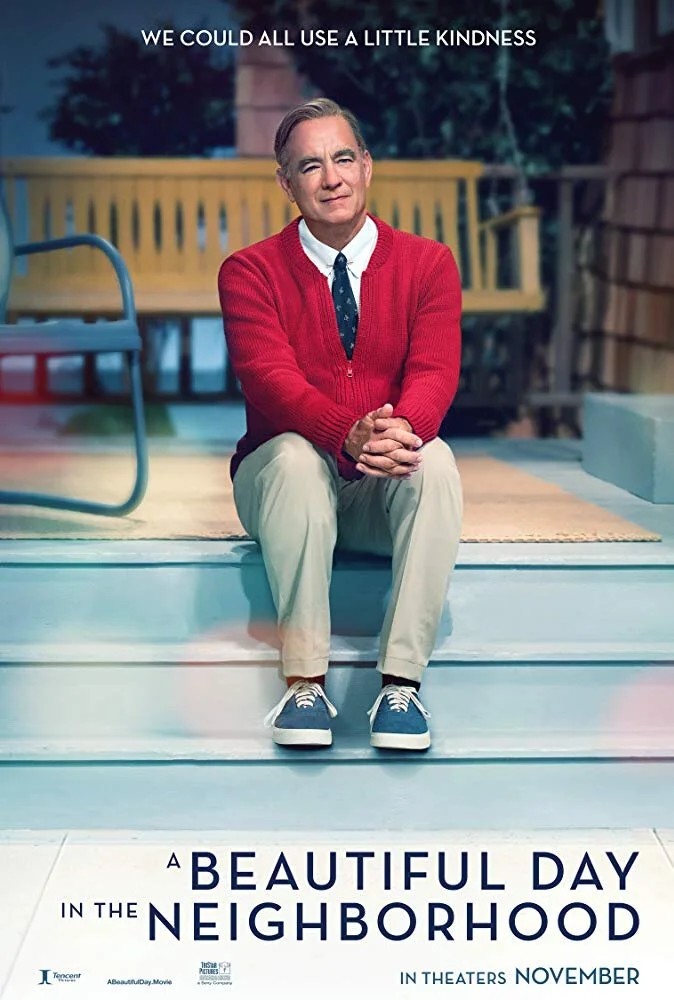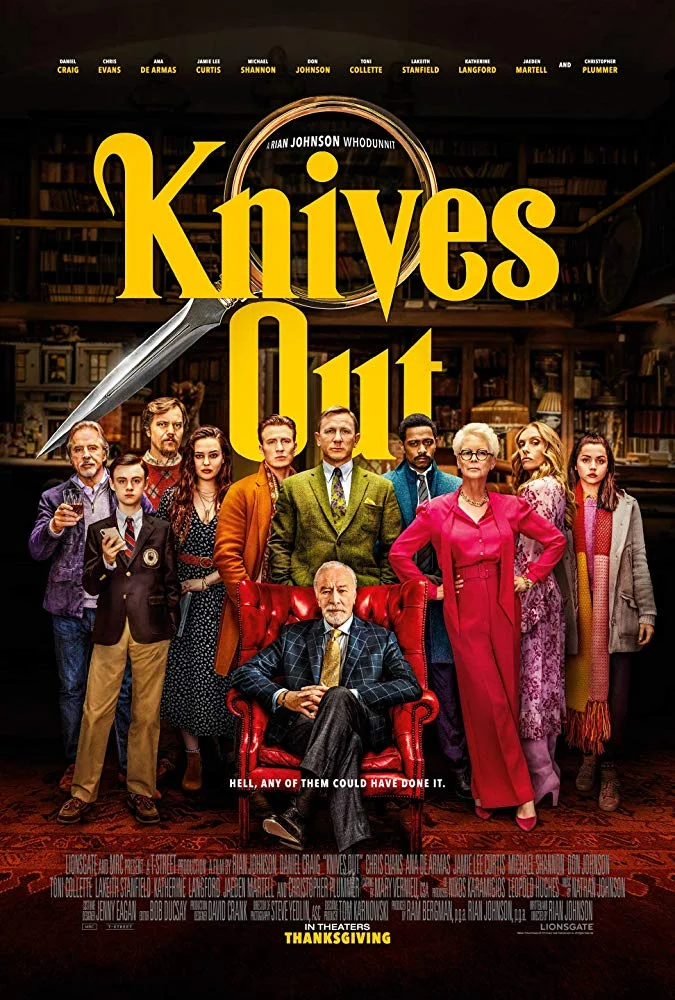'A Beautiful Day In The Neighborhood' Is The Therapy Some of Us May Need
Making a narrative film on Mister Rogers with the looming shadow of "Won't You Be My Neighbor" over your shoulders is no easy task. Director Marielle Heller does a remarkable job in separating the two by focussing the influence Mister Rogers has on everyone through one man's struggles. Much in the vein of countless biopics, we have a story about a journalist assigned to do a piece on a distinguished subject. As the story progresses, we learn that the real person who the story is going to be about is the writer himself. The typical biopic elements of these types of films are prevalent. The journalist, Lloyd Vogel (Matthew Rhys), has deep-seated family issues with his father Jerry (Chris Cooper) over something he did to Lloyd's mom in the past. Fred Rogers (Tom Hanks) goes out of his way to try and pull Lloyd out of that grief.
The Basic premise for a story about a journalist establishing an unexpected, profound connection with his subject is rooted within a familiar narrative. Where "A Beautiful Day In The Neighborhood" stands out is in our everyday need for Mister Rogers in 2019. Humans will always be in pain. With the dawn of technology, we live in a soundbite landscape where the pain we reflect upon each other is inescapable. A top Facebook, Twitter, or YouTube comment is usually the one that has "the sickest burn" or "the best roast." We live in a digital comedy club, forgetting that sticks and stones are just an allegory to help children handle verbal abuse from other children who don't know any better. Living in an interconnected digital community makes us forget about the relationship we have with one another on face to face basis. "A Beautiful Day In The Neighborhood" reminds us why it's essential to be kind to your fellow man.
Lloyd is a journalist who doesn't do puff pieces. He wants to get to know the person he is covering. What are their flaws? How do we establish the person from the character? For screenwriters Micah Fitzerman-Blue and Noah Harpster, they're informing the ticket buyer that they're aware of your skepticism about seeing another movie showing a renowned figure in a celestial manner. Lloyd tries to crack Mister Rogers every chance he can so the reader can see the man behind the icon. What would provoke Llyod too antagonize a kind man like Fred Rogers, though? As you may as well guess it's because of his dad. From the moment we meet Jerry, he doesn't appear as the monstrous figure Lloyd makes his out to be. He overcompensates himself with kindness, welcoming everyone with open arms, singing at weddings, striking up conversations whenever he can. But Lloyd knows it's a facade. Everyone to Llyod is a faker. From the ashes of Lloyd's fury, he built a career on putting well-known people in a negative light.
Mister Rogers is the fireman meant to cool down that fire. It's a fire we all feel. The ones that we can't stop burning inside of us. Others have hurt us, so we want to inflict our pain on them to expose the truth of people's true intentions to the world. It's the basis of the competitive nature of humanity. That nature destroys the nurture we contain as children. When Lloyd feels embarrassed because a grown man is talking to him about his mature issues to someone holding a puppet, he feels condescended. Mister Rogers is cute when we are children, but then we grow up to face a cold, bitter world. So why is then that Lloyd can't get Fred out of his head? A man playing with toy trains and speaking to everyone like they're in preschool? Perhaps it's because when we lose our sense of empathy, our kindness regresses us to an emotionally immature age beyond children. Granted, we don't cry uncontrollably in public when we don't get what we want, but we forget to be love to one another. Fred reminds Lloyd that to not forgive or love others can only lead to an infinitely dreary existence.
There's a reason Fred goes so far out of his way to help others, but it's only slightly implicated in the film. The only clue we get to his backstory is that he was picked on by other kids in school for his weight naming him "fat Fred." What matters to the team behind this film isn't, why does Fred help people? But instead, how can we get help when even the one's closest ones in our lives don't know how to provide it for us? How can you fix your broken self? This film is unique because of how it's stylistically designed as a partial episode of "Mister Rogers’ Neighborhood." The film opens with the show's infamous opening with Mr. Hanks at the helm introducing us to Lloyd through a picture frame. Instead of utilizing establishing shots of the locale for each scene, we are presented with miniature play-sets of the exteriors reminiscent of the show. It shifts from a standard narrative to an old analog video from the show seamlessly, making sure not to distract the viewer. This choice is to make the observer a child once more, watching the show through the lens of a story told for adults.
It comes as no surprise that Tom Hanks is a marvelous choice to play Mister Rogers. Hanks is synonymous with being one of the most compassionate celebrities out there. In the act of compassion, Hanks doesn't heighten the tone of his voice but keeps it at his natural level avoiding the pitfalls of mimicry. What does come as a shock is that Mr. Hanks is distantly related to the real Fred Rogers. They are 6th cousins. How far on the relationship spectrum that goes is beyond my knowledge. What it does display, however, is how we are all interconnected as people. "A Beautiful Day In The Neighborhood" is a reminder of how love is what will keep us intermingled.
Whenever I see a movie about Mister Rogers, there's a profound effect on the audience I don't see many films replicate. Everyone is much kinder to their fellow strangers in the auditorium when the movie ends. As I exited the multiplex, I kindly let the lady in front of me cross over to the exit when noticing I cut her off by accident. We exchanged polite smiles with one another. She dropped something by the doorway. Picking up the item, I asked if it belonged to her. Laughing so graciously, she said it did. I gave it to her, and we went our separate ways out of the theatre. Although this sounds like a pointless thing to address, I write it because the atmosphere in the theatre was one where everyone left feeling closer to one another. It was nothing that was said or done. It was just something that Mister Rogers can make you feel. If you were to take your family to see a picture this year, or even any year, this would be the one to take them to during the holidays. "A Beautiful Day In The Neighborhood" will remind you why you should always stick with each other.
**** out of ****




